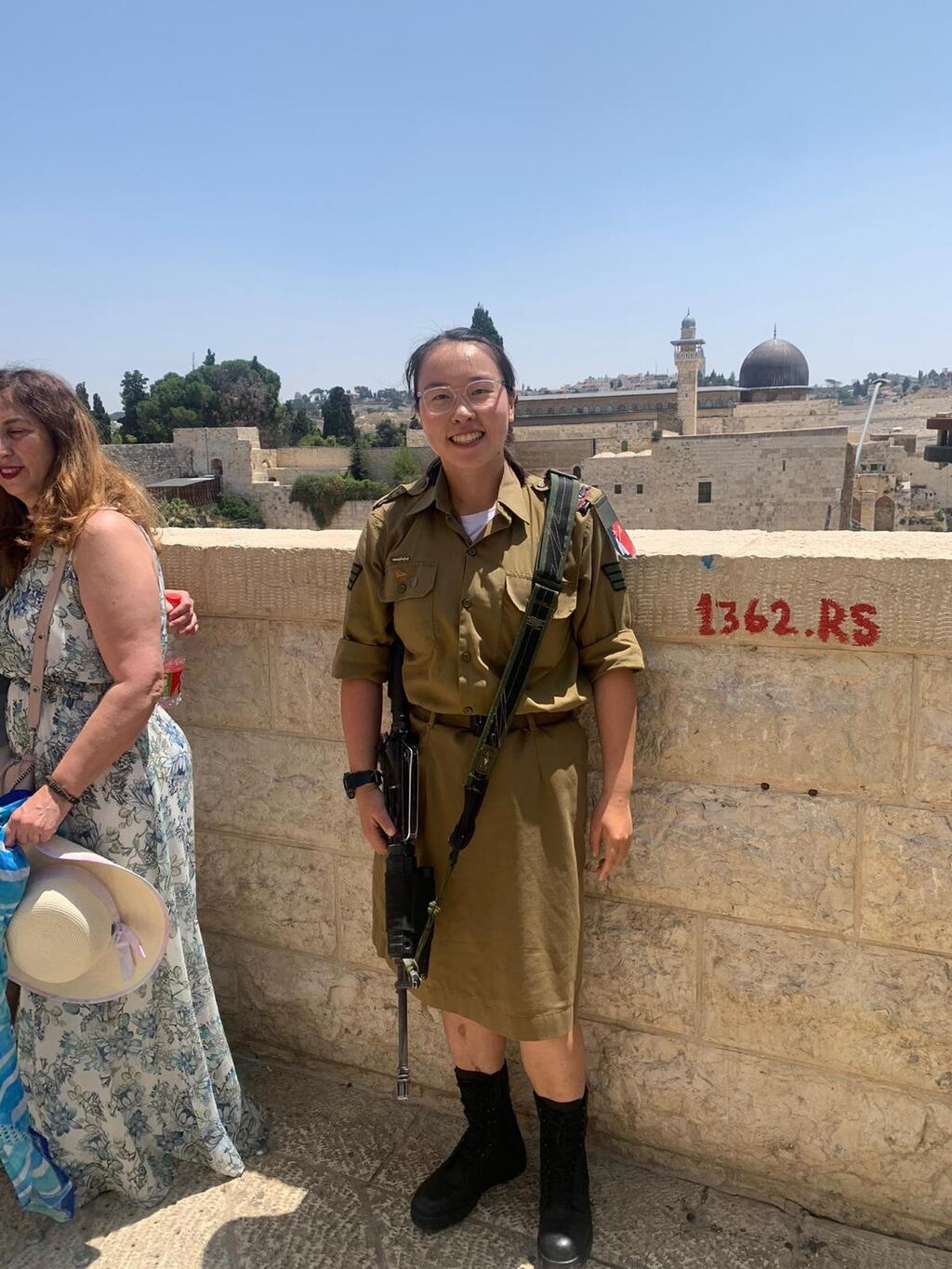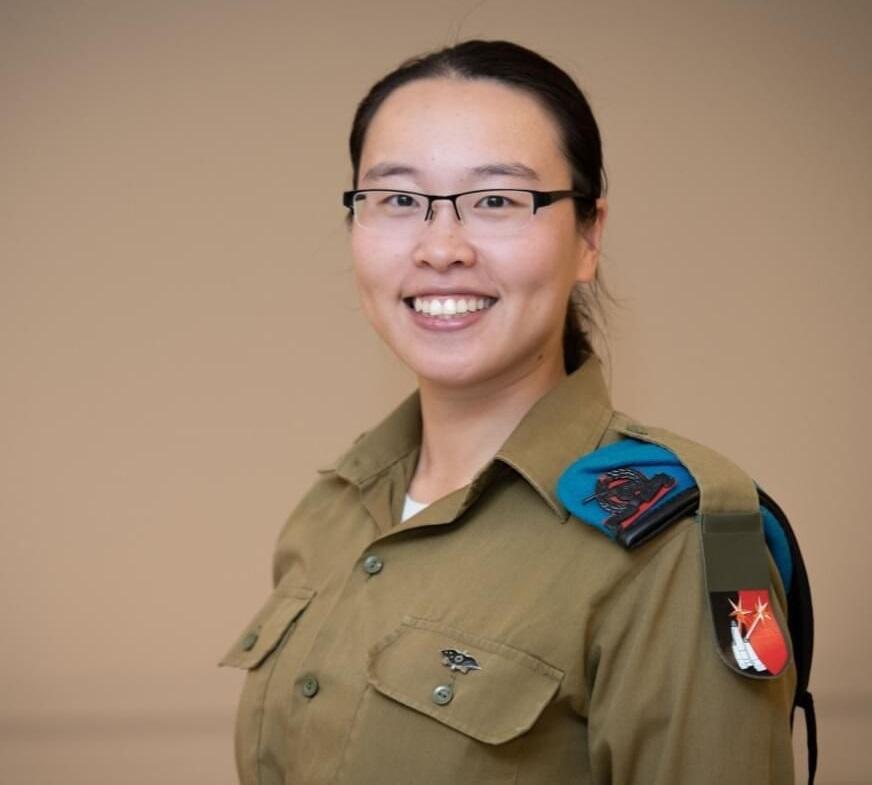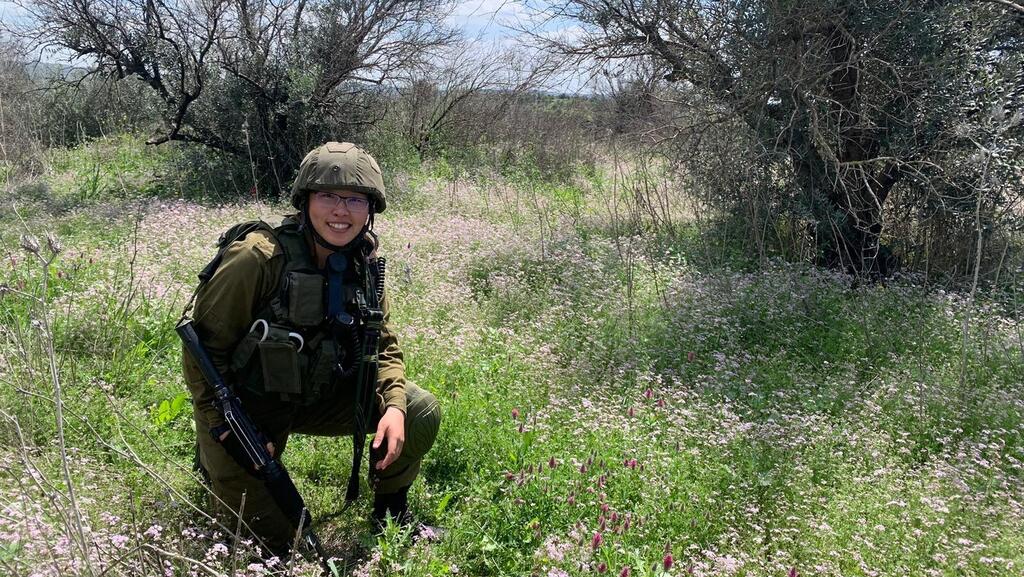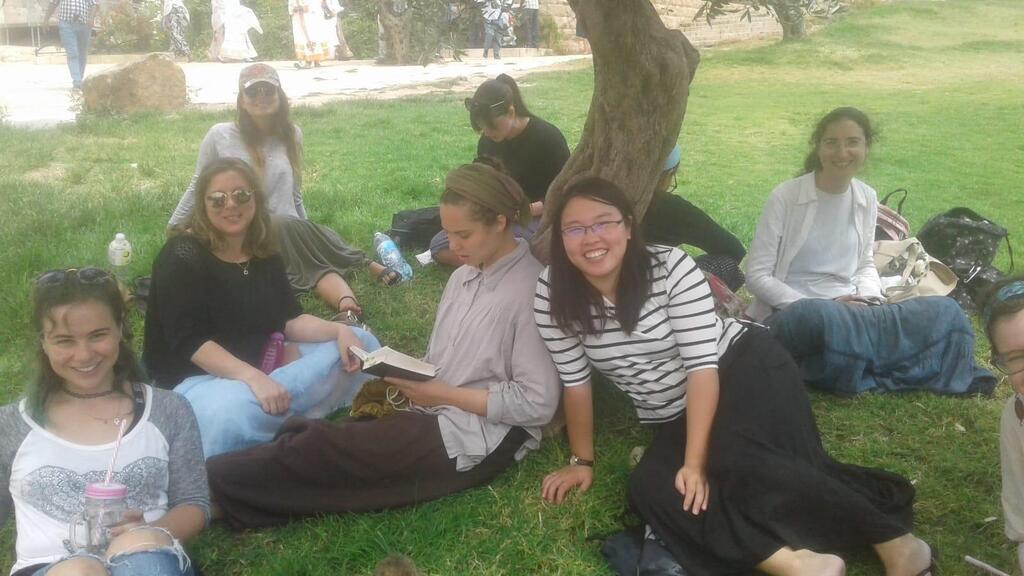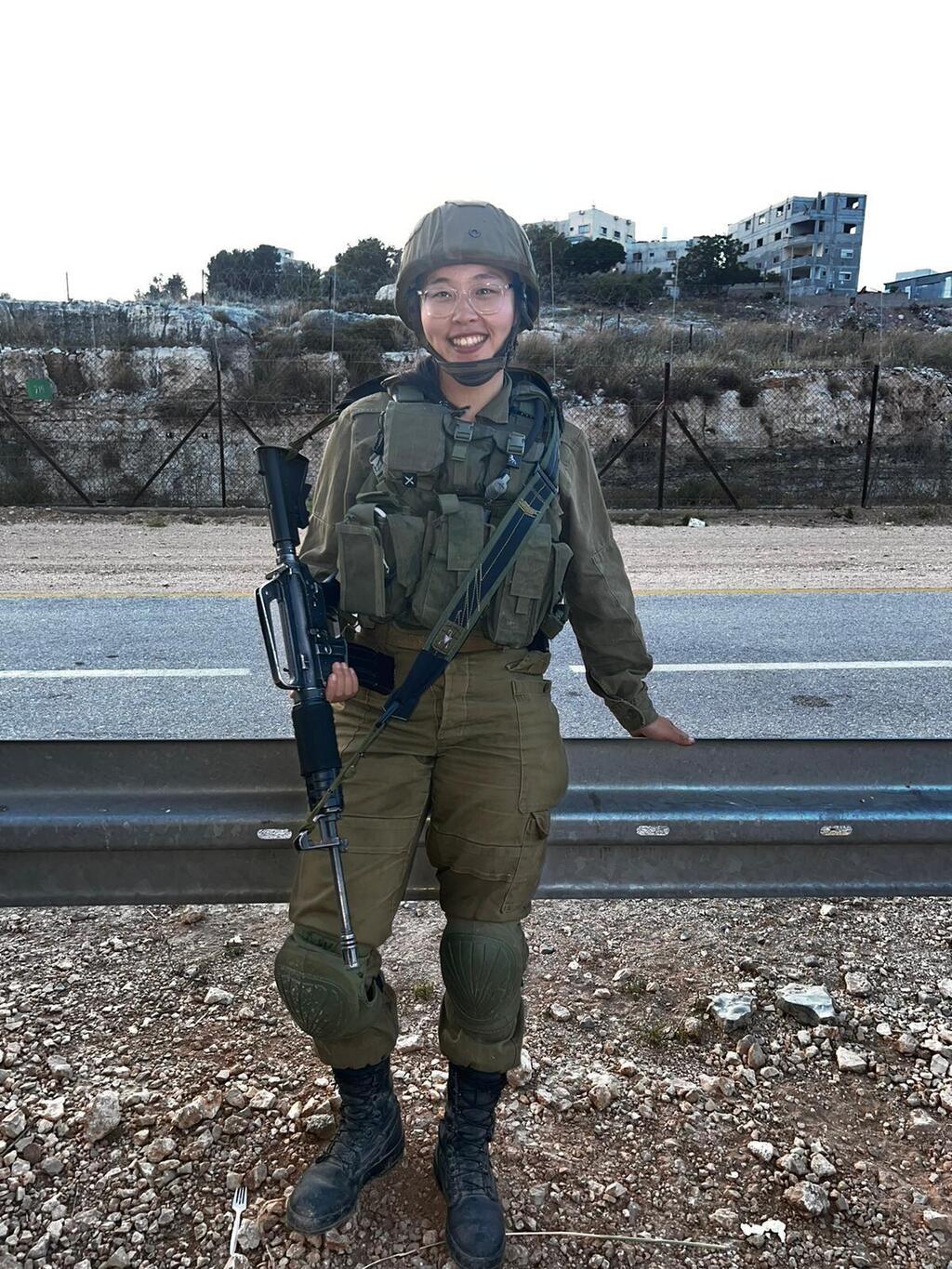Abigail Windberg, 24, was at the scene of a West Bank terror attack five years ago. "I heard gunfire and took cover. Everyone was told not to go outside. When I eventually went out, I saw blood on the road," she says. "It was the first time in my life that I felt such danger. Only then did I truly grasp the reality of the situation in Israel."
Read more:
Windberg, a native of China who was at that time studying in a Jewish women's seminary, hadn't yet officially completed her immigration process and had been understandably shaken. "When my mom heard about it, she almost booked me a flight back to China. I was in a real dilemma," she says. "On the one hand, I wanted to continue my studies, but on the other hand, I was genuinely scared. In the end, I told my mom that I would at least I will complete my year of studies because it was important to me."
This incident was a turning point that ultimately led her to decide to enlist in the IDF and serve as a combat soldier. Today, she is a signal operator in the 215th Artillery Brigade, and her unit conducts training exercises in the Golan Heights. "I thought to myself - God forbid if something like that were to happen to me, and I wouldn't have the luck of having someone protecting me and the people I love, what would I do? I wanted to be able to defend myself and others," she explains. "I realized that the security situation in the country wasn't that great, and I wanted to do something for the state."
How did your mother react to your decision to enlist?
"My mother thinks I'm crazy. Both of my parents think that. They don't really understand it. My mom lives in China, and my dad in the United States, two of the world's strongest countries, so they don't quite grasp why I chose this particular country. I strongly believe in the idea of Zionism and feel that it's important for every Jew, at the very least, to help Israel in some way, if not by immigrating like I did."
Windberg's family originally belonged to the ancient Jewish community in Kaifeng in the Henan province. They were not an observant community, but they did maintain certain traditions and customs, including Jewish holidays. Her father's family eventually moved to the United States, and he was born in Chicago. When she was 10 years old, her parents divorced. Her father returned to the United States and currently lives in Boston, while her mother still resides in Beijing. "My mother used to manage a chain of hotels, so every few years, I had to move from to a different city in China. It was challenging; I studied in boarding schools, and I was constantly adjusting to a new environment," she says.
Was Judaism practiced in your household?
"In my home, we did celebrate Passover, but my parents aren't religious, and it's not very important to them. As a child and teenager, I didn't know much about Judaism, and I never read the Bible. Judaism is not one of the five recognized religions in China. Authorities warned the Kaifeng community that people were not allowed to pray together. Most people in the community aren't religious, so it did not matter to them. In my family, we have Jewish traditions, like not eating pork, seafood, or blood. We also don't mix meat and dairy. Pork is a food staple in China, and I always made sure not to eat it.I remember when I was in boarding school, some friends put pork in my lunchbox," she says. "They thought that if I ate it, I would die. They were just kids, and they did it as a joke. After I ate it, I felt like I had done something wrong."
Was there any discussion in your home, about Israel and Zionism?
"We always heard about Israel from people who had visited and there are also organizations that come to China and volunteer to teach people from the community about Judaism."
Did you encounter antisemitism in China?
Not generally, but I wouldn't usually tell people that I'm Jewish. Most people in China don't even know what being Jewish means. The truth is, that I also didn't fully understand what it meant to be Jewish. Sometimes kids would make fun because the Chinese word for Jew sounds the same as the word for pig. When I studied at a university in the United States, I did encounter antisemitism, particularly on campus during protests against Israel. There were incidents when people on campus who were antisemitic, vandalized a sukkah that had been set up there."
From the kibbutz to the midrasha
After a year of studies at the University of Washington in Seattle, she felt the need to change direction. "At the end of the year, I felt like I didn't know what I wanted to do with my life. I returned to China to weigh my options," she says. "My mom's friend told her about volunteering opportunities in Israel so I volunteered at a kindergarten in Kibbutz Ein Gev, near the Sea of Galilee."
She arrived in Israel through the KPC (Kibbutz Volunteers Program Center) organization, and it was her first introduction to the country. The original plan was to volunteer on the kibbutz for a year. "At first, I thought all of Israel was like a kibbutz," she says. "I loved the life there, the tranquility, the simplicity. I was at Ein Gev for Passover, and before I got there, I didn't know that a Passover Seder could be so interesting. Traditional people from the kibbutz would invite me home for Shabbat dinners and to the synagogue. It interested me, and I wanted to learn more about Jewish tradition."
At first, she studied at the Midreshet Nishmat in Jerusalem, and later at Midreshet B'erot Bat Ayin on the West Bank and during that time, had been near the terror attack. "The seminary was somewhat Hasidic. it was a beautiful place, but it didn't suit me. I was more down-to-earth. But I loved studying Gemara and Torah," she notes. "After a few months, I returned to Jerusalem and studied at Nishmat and at the Ora Institute."
The Chief Rabbinate of Israel does not recognize members of the Kaifeng community from China as Jews because they determined their Jewish status based on patrilineal descent, rather than matrilineal descent, and because of the suspicions of intermarriage.
Wendberg had to undergo conversion to complete her immigration process under the Law of Return. "The Rabbinate told me that I needed to undergo conversion, like all members of the community. After studying for two years at the Midrasha, I went to a rabbinical court where I was asked very basic questions. It was somewhat annoying because, by that point, I had already had advanced studies It was easy for me to talk to all the judges," she says.
In the IDF, she first trained for a position in an elite unit in the Artillery Corps, but her path was not smooth. "I spent a year in the course, but because of a leg injury and also because my Hebrew was not yet good enough, I was transferred out. When I recovered from the leg injury, I requested to return to combat duty. After five months, I managed to get a position I now hold," she says.
Many in the religious world, oppose women serving in the military, especially in combat roles.
"When I was studying, I was recommended the national service rather than enlisting in the IDF, but I believe that everyone should do what suits them. I knew I could be a good fighter. It's important for me to do something physical to defend the country."
Thanks to her military service, Windberg is now fluent in Hebrew. Next month, her mother is expected to visit for the first time in two years, and they will finally reunite.
For Windberg, Zionism is not just a slogan. "In the end, the State of Israel is the home of the Jewish people," she says. "I think the decision to come was the best decision I've made in my life. Here, I know exactly what my path is."


